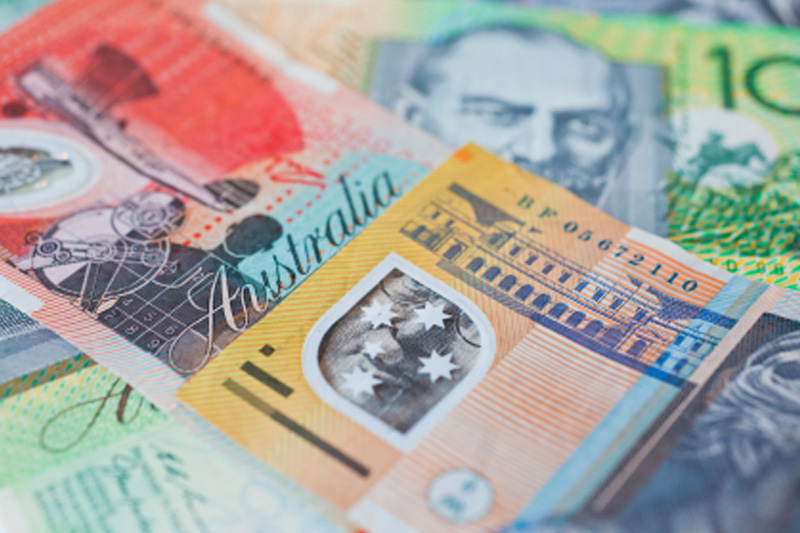By Swati Pandey
SYDNEY, Oct 26 (Reuters) - The Australian dollar hovered around 3-1/2 month lows on Thursday in the wake of slower-than-expected inflation data, while its New Zealand cousin paused near a five-month trough as Jacinda Ardern was sworn in as Prime Minister.
The Aussie dollar AUD=D4 had steadied for the moment at $0.7710, but that followed four straight sessions of losses which took it as low as $0.7687 - a level not seen since mid-July.
The latest lurch lower came after official data out on Wednesday showed Australian consumer prices rose 1.8 percent for the year to September, below expectations for a 2.0 percent increase. figures, which showed core inflation has undershot the central bank's 2-3 percent target for almost two full years, reminded financial markets that interest rates are set to remain low for months yet.
The Aussie also took collateral damage from a decision by the Bank of Canada (BoC) to dampen expectations for another interest rate hike this year, sending the loonie CAD=D4 diving to a more than three-month low. Aussie rallied to a two-year peak of $0.8124 in September in part as investors wagered the Reserve Bank of Australia (RBA) might follow its Canadian counterpart in pushing rates higher.
The Bank of Canada's dovish turn, coupled with soft local inflation, drove home the view that rates are not going up in a hurry in Australia.
"The AUD has weakened in sympathy with CAD," Citi analysts said in a note. "Summer 2017's most hawkish central bank is now dovish after two hikes and (Australia's) CPI was poor."
Investors are now waiting to see what the European Central Bank does at its meeting later in the day. In addition, RBA Deputy Governor Guy Debelle speaks about "uncertainty" tonight.
Across the Tasman Sea, the New Zealand dollar NZD=D4 was down 0.3 percent at $0.6873, having touched $0.6861 on Wednesday which was a level not seen since mid-May.
The kiwi has been under heavy pressure since the country's left-leaning Labour Party led by Ardern won control of government with the help of two minor parties.
Investors are worried the coalition will take a hard line stance on immigration and foreign investment.
Among its proposals are plans to cut immigration, raise the minimum wage and tweak the mandate of the Reserve Bank of New Zealand to include employment, not just inflation.
Analysts suspect including inflation could mean interest rates stay lower for even longer than the RBNZ is currently predicting, with markets already not pricing in a hike until 2019.
New Zealand government bonds 0#NZTSY= were a touch softer with yields half a tick higher at the long end.
Australian government bond futures were mixed, with the three-year bond contract YTTc1 flat at 97.920. The 10-year contract YTCc1 slipped 2.5 ticks to 97.1900.
